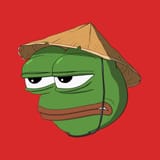Anonymous

8/2/2025, 2:44:16 PM No.213401243
So if you dk how Chinese language works, yes, there are a buncha characters you have to memorise, like: 市, 人, 电, 话, 谁, and 建. This is a recognizedly difficult aspect of Chinese language study, and I will not doubt it's an ingenious invention on their part. (It's slightly less difficult if you spend your entire childhood being made to learn Chinese.)
A more subtle aspect of studying Chinese, though, is that there is one higher degree of "memorization" needed, in that you have to remember "words" too, which are usually 2 characters, sometime more. For instance, you can put 电 and 话 together, dian4 and hua4, meaning "electricity" and "speech" on its own, to make 电话: dian4 hua4, which, jointedly as a unit, have the meaning of "telephone".
Another example of this would be 文 wen2 (language or culture) + 明 ming2 (brightness) = 文明 wen2 ming2 (civilization)
It seems beautiful, and it undoubtedly is beautiful. However, what troubles me is that recently I've been self-studying Japanese, and it's recently come to light for me that most, perhaps the vast majority, of these "words", is actually invented not by ingenious Chinese scholars, but Japanese reformers during the 19th century Meiji restoration. In seeking to modernize their civilisation and make it on par with the West's, they basically made a bunch of new "words", and it was THOSE who found their ways into Chinese, Korean, and Vietnamese. NOT the other way around (Chinese -> the other 3).
Not wishing to cast doubt on the intricacy of this linguistic culture. But I can hardly help but feel betrayed at these revelations.
A more subtle aspect of studying Chinese, though, is that there is one higher degree of "memorization" needed, in that you have to remember "words" too, which are usually 2 characters, sometime more. For instance, you can put 电 and 话 together, dian4 and hua4, meaning "electricity" and "speech" on its own, to make 电话: dian4 hua4, which, jointedly as a unit, have the meaning of "telephone".
Another example of this would be 文 wen2 (language or culture) + 明 ming2 (brightness) = 文明 wen2 ming2 (civilization)
It seems beautiful, and it undoubtedly is beautiful. However, what troubles me is that recently I've been self-studying Japanese, and it's recently come to light for me that most, perhaps the vast majority, of these "words", is actually invented not by ingenious Chinese scholars, but Japanese reformers during the 19th century Meiji restoration. In seeking to modernize their civilisation and make it on par with the West's, they basically made a bunch of new "words", and it was THOSE who found their ways into Chinese, Korean, and Vietnamese. NOT the other way around (Chinese -> the other 3).
Not wishing to cast doubt on the intricacy of this linguistic culture. But I can hardly help but feel betrayed at these revelations.
